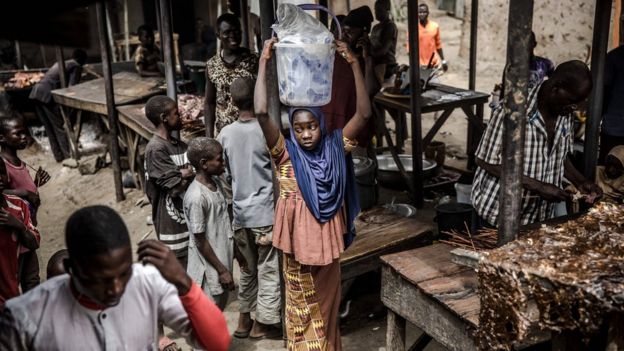
Nigeria’s President Muhammadu Buhari has been re-elected for a second four-year term. Africa’s most populous nation faces a range of problems including corruption, an economic slowdown
The president made some efforts in his first term to fight the graft which has seen tens of billions drain out of the exchequer. Even though Buhari’s personal financial integrity has never raised questions, he has been widely criticized for being extremely slow in implementing the change. Will he be more vigorous in his second term?
A reality check is needed: the extent of corruption is so wide and deep, it affects numerous aspects of public life that making serious inroads into the problem would require a focus, energy, and application that was lacking in President Buhari’s first term.

His absence from the country for long periods due to ill-health – he sought treatment in London for a still undisclosed illness – gave the impression of an administration that often crawled rather than stride.
President Buhari has been lucky in his choice of deputy. Vice President Yemi Osinbajo showed himself to be dynamic and brave when he stood in as acting president, notably reining in the security services and acting to stabilize the naira, the local currency, at a time of deep economic uncertainty.

Vice President Yemi Osinbajo
Mr. Buhari has been nicknamed “Baba Go Slow”. It took him six months to appoint his cabinet first time around.
The second problem he faces in fighting corruption is having the necessary political support
Nearly half of Nigeria’s population live in extreme poverty, the World Bank says
Economically the country remains dependant on oil prices for 70% of government revenues – a long-term vulnerability that helped pull Nigeria into recession between 2016-17.
A sluggish economic growth: 2.2% for the coming year in a country with unemployment of more than 20% and nearly half the population living in extreme poverty.
Ending the dependency on oil revenues needs to happen at a much faster pace.

President Buhari also faces an array of security threats from clashes between farmers and herdsmen in the Middle Belt, continuing instability in the Niger Delta and – most worrying of all – a revived threat from Islamic extremists in the north of the country.
Nigeria’s ‘generation democracy’
For a president at the height of his powers, these would be an intense array of challenges. But Mr. Buhari is in his seventies with a history of health problems. Will he manage the challenge?